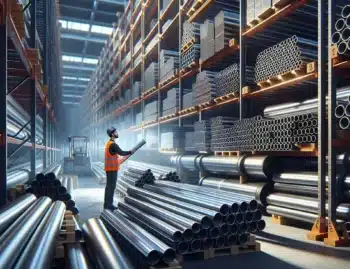Reasons for Dumping
1. Reduce competition: An industry that’s not doing well abroad due to high competition might decide to sell at a loss so as to put some competitors in the foreign country out of business, reducing the competition. An industry might also decide to operate at a loss abroad for a period so as to eliminate competitors in the foreign country. This creates a monopoly, allowing the industry to set the prices it deems suitable.
2. Get rid of substandard products: In some cases, industries might export certain substandard goods at a loss to rid the domestic market of such products.
3. Unload surplus products: Sporadic dumping is the process through which an industry occasionally sales commodities abroad at lower prices or below production cost without changing the domestic price to unloading temporary surplus commodities.
Steel Dumping
Although dumping of steel might have a positive effect on the exporting country, in the long run, it has far more negative impacts on the importing country and might result in negative impacts on the exporting industry too.
How steel dumping affects the steel industry
When there’s a large volume of dumped steel in any country, the local industry is highly challenged and at times unable to compete, especially if multiple companies dump the same product in a country or region. This is because the price difference between the foreign and local commodity, in most cases, differs greatly, and the consumer might opt for the cheaper foreign product. This might lead to the eventual collapse of that particular industry. Trading quotas might also be set by the importing government or region as a measure to protect the local industry. This might affect the overall sales of the exporting country leading to losses.
Economic impacts of steel dumping
Since steel dumping might lead to industry collapse, many companies end up closing down. This leads to many people losing their jobs. The government ends up losing a huge amount of revenue leading to economic instability.
Environmental impacts of dumping
Dumping of steel might mean increase sales leading to an increase in demand. The increased processing activities thus lead to more waste production, resulting in pollution during disposal. The increased demand also forces the exporting industry to feature a high demand for steel raw materials. The land’s landscape might thus be affected greatly by the increased mining activities.
Alternatives to steel dumping
Since dumping of steel causes negative effects to both parties, it is advisable for industries and governments to apply alternative means of solving their steel related issues without the need to dump. Some examples of such alternative include:
• Contracts with foreign governments to ensure fair trade, while enabling off-load of the surplus goods.
• Merging with foreign industries for protection of the interests of both parties.











